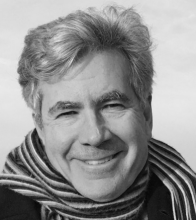
Bruno and I are most grateful to Elke Fein and IFIS for this opportunity to share details of our book “Metathinking” in IFIS' Online Colloquium n° 38. We were hoping that we would get a warm reception and interest from the Integral community and we were not disappointed. It was wonderful for us to have such a numerous and receptive audience.
We wrote our book with the intention of helping people to become deeper and more complex thinkers in order to be able to cope better with the reality of life in our multi-faceted world. As much as possible we want to demystify dialectical thinking and to separate it from its various philosophical and political connections, such that people can use it as an adjunct to whatever tools they currently use for their thinking. Much as Integral invites people to take different perspectives in their thinking, dialectical thinking invites people to apply different modes in the way they think. We see “Metathinking” simply as thinking about thinking and applying choice in the way one thinks about reality.
We are aware, however, that these ideas are never simple to convey to people, especially within the confines of a two hour on-line colloquium. Nevertheless, we hoped that at least some of what we had to offer would resonate with the IFIS audience and spark more interest in how people can think differently.
To that end, we decided we would structure the session into a mix of talk and interactive exercises, starting by describing the broad “what and why”, then conducting an exercise to recognise the thinking modes, before going into more detail, and then having a second exercise where people got some experience of using the thinking modes.
The first exercise asked people to identify a thinking mode behind the presentation of a particular symbol for the concept of sustainability. We were delighted that people appeared able to grasp the ideas we had put forward and apply them in naming thinking modes correctly. This gave us some encouragement moving forward into the second part of our presentation where we tried to show how dialectical thinking could be combined with Integral’s AQAL model. We looked at how that combination could be used as a more powerful mode of analysis for different case studies and problems, and indeed as a tool for conceptualising leadership of transformative initiatives in the real world.
This led to our second exercise where we invited people into small groups. Their task was to try out the thinking modes using a collection of “mind opening questions” to help an individual explore where they were in their professional life. This is the first time we have tried this exercise in a relatively short meeting on-line, so it was very much an experiment. Our perception was that it was only partially successful, not least because using the thinking modes is more difficult than simply identifying them and consequently takes longer to master.
Another hypothesis for why our second exercise was less successful than we would have liked is that the on-line space does not easily allow for the kind of “social warm-up” that J.L Moreno (the father of psychodrama) would have considered essential to prepare people for such a kind of group exercise. When we have conducted day long workshops in person, this kind of social warm up can occur as people interact over the course of the day, and consequently they have more time to absorb the learning and prepare themselves to apply it in the experiential exercises.
Nevertheless our hope is that people found the colloquium worthwhile and that Metathinking is something that they will wish to learn more about. We would have liked more time to answer questions and hear what people thought of what we had presented at the end of the session. So we were very happy to continue the conversation with a few participants who were able to stay on.
Finally we must extend our gratitude, firstly to Bettina Geiken for most skilfully managing the IT and for stepping in so adroitly to facilitate when Elke’s internet connection failed, and secondly to Adrian Wagner for publicising the meeting and organising invitations.
